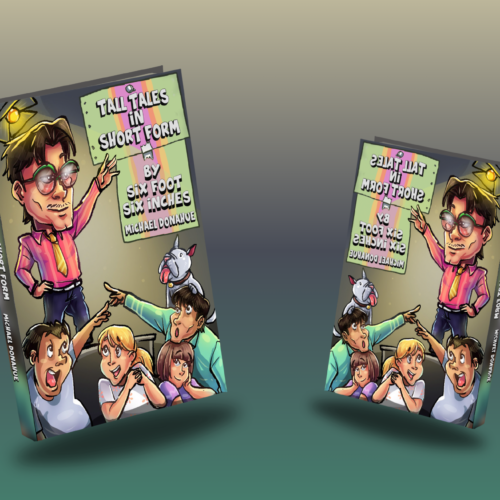
Kevin Bennett
- Press Release - February 9, 2026
BREAKING THE CYCLE
How One Man Found Redemption After Three Decades Behind Bars A Review of Re-Incarceration: A True Story of Life Inside the Revolving Door of Jail by Tyke McCarthy The term "revolving door" conjures images of grand hotel lobbies and gleaming corporate towers. For Tyke McCarthy, it meant something far different: the endless,
TAGS:


5 mins

Kevin Bennett
- Press Release - June 6, 2025
L. Renae Spann’s Upcoming Memoir,
PRESS RELEASE – PRE-RELEASE ANNOUNCEMENTFOR IMMEDIATE RELEASEContact: Parker PublishersEmail: [email protected]: June 2025In a time when many stories are flattened into slogans and
3 mins

Kevin Bennett
- Press Release - December 14, 2024
A Story of Family, Fate,
David M. Gullstrand’s The Christmas Quilt Weaves a Heartfelt Tale of Love, Legacy, and Home ORLANDO, FL, UNITED STATES — In his
4 mins

Kevin Bennett
- Press Release - May 5, 2025
Minister Zelma McKinney Extends Global
ORLANDO, FL, UNITED STATES, April 15, 2025 -- Minister Zelma McKinney, the visionary founder of Dissect My Soul Ministries, established in 1988,

Ethan Alexander
- Press Release - June 25, 2024
Introducing Tall Tales In Short Form By Six Foot Six Inches:
[Lake Worth, Florida, 06/25/2024] – Announcing the release of highly anticipated memoir, Tall Tales In Short Form By Six Foot Six Inches by Michael Donahue. This memoir chronicles the enthralling tales filled with
TAGS:

Ava Elizabeth
- Press Release - November 25, 2025
FEATURE ARTICLE FOR PAPER MAGAZINE BY PARKER PUBLISHERS
The Kingdom Leader in You: A Call to Lead with Purpose, Courage, and Eternity in View Leadership today is noisier than ever. Everyone has a strategy to follow, a ladder to climb, and a system to copy. Yet very few voices slow us down long enough to ask the question that truly matters. Who am I becoming as I lead?Dr. Apostle Daniel F. Andrews answers this question with striking clarity
TAGS:

Press Release - May 5, 2025
Minister Zelma McKinney Extends Global Reach
ORLANDO, FL, UNITED STATES, April 15, 2025 -- Minister Zelma McKinney,
Press Release - May 2, 2025
PRESS RELEASE – PRE-LAUNCH ANNOUNCEMENT
Private Investigator Paul Charles Duprat Exposes an Alarming Pattern of Political
Press Release - April 11, 2025
Benjamin Casad’s Debut Book Challenges the
FOR IMMEDIATE RELEASEContact: Parker PublishersEmail: [email protected]: 11 April 2025 Benjamin Casad
Ava Elizabeth
- Press Release - November 12, 2025
FOR IMMEDIATE RELEASE
William Gilmore Returns with a New Guide for Leaders Who Want
TAGS:

Kevin Bennett
- Press Release - June 6, 2025
L. Renae Spann’s Upcoming Memoir, Confronts
PRESS RELEASE – PRE-RELEASE ANNOUNCEMENTFOR IMMEDIATE RELEASEContact: Parker PublishersEmail: [email protected]: June
TAGS:







